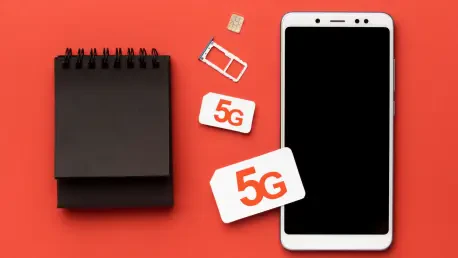In a landscape where telecom mergers often drag on for years with uncertain returns, T-Mobile has emerged as a standout by turning a significant acquisition into a masterclass of value creation. The $4.3 billion deal to acquire UScellular, finalized recently, has not only reshaped industry expectations but also demonstrated how strategic planning and swift execution can yield immediate financial and competitive advantages. This transaction stands out in a sector notorious for slow integration and delayed profitability, as T-Mobile defied norms with rapid returns and long-term vision. By focusing on operational efficiency, cost management, and critical asset gains, the company has crafted a blueprint for success that others in the telecom space might struggle to replicate. What makes this acquisition particularly noteworthy is how it balances short-term wins with sustainable growth, setting a new benchmark for mergers in a highly competitive market.
Redefining Speed and Profitability in Telecom Mergers
The telecom industry is often criticized for the sluggish pace at which mergers translate into tangible financial benefits, but T-Mobile has shattered this stereotype with the UScellular acquisition. Within the first quarter following the deal’s closure, projections indicated a remarkable $400 million in service revenue, representing a 9% return on investment almost instantly. This kind of rapid profitability is virtually unheard of in a sector where returns typically materialize over several years. Moreover, T-Mobile raised its synergy expectations from an initial $1 billion to $1.2 billion in annual savings, effectively lowering the net cost of the deal to $3.2 billion. Such financial agility underscores a deliberate focus on extracting value from the outset, ensuring that the merger doesn’t just add scale but also boosts the bottom line with unprecedented speed. This approach signals a shift in how telecom companies might evaluate and execute future acquisitions.
Beyond immediate financial gains, the speed of integration further highlights T-Mobile’s strategic prowess in managing complex mergers. The company has committed to fully integrating UScellular’s operations within a tight 24-month timeline, a stark contrast to the industry standard of three to four years for similar deals. This accelerated schedule is not merely ambitious but rooted in refined processes and lessons from past experiences. By streamlining operations and aligning systems swiftly, T-Mobile minimizes disruption while maximizing efficiency, ensuring that both employees and customers experience a seamless transition. Additionally, the integration cost was kept at a lean $450 million, or roughly 10% of the deal’s value, which is notably lower than the typical 10-20% industry benchmark. This cost discipline, paired with a clear timeline, positions T-Mobile as a leader in executing mergers that deliver value without the usual delays or bloated expenses.
Strategic Asset Gains for Long-Term Dominance
A pivotal element of the UScellular acquisition lies in the spectrum assets, which account for 30% of the acquired portfolio and are poised to be a game-changer for T-Mobile’s future. Spectrum, a finite and government-regulated resource, is increasingly critical in the era of 5G expansion, with its value expected to appreciate by 15-20% as demand for faster, more reliable networks grows. Securing these assets ensures that T-Mobile can enhance its network coverage and speed, maintaining a competitive edge in a market where connectivity is paramount. While the addition of 4 million customers and retail stores provides an immediate revenue boost, it’s the spectrum holdings that promise sustained dominance over the long haul. This strategic focus on high-value assets reflects a forward-thinking approach, prioritizing infrastructure that will support growth for years to come in an ever-evolving digital landscape.
Equally important is how T-Mobile leveraged past challenges to refine its acquisition strategy, particularly drawing from the complexities of the Sprint merger. That earlier deal, fraught with the task of blending disparate networks and corporate cultures, served as a proving ground for navigating large-scale integrations. The expertise gained allowed T-Mobile to approach the UScellular merger with precision, avoiding common pitfalls and ensuring a smoother process. This experience translated into better cost management and a clearer roadmap for combining operations without sacrificing service quality. By applying hard-earned lessons, T-Mobile not only mitigated risks but also turned potential obstacles into opportunities for efficiency. The result is a merger that not only adds to the company’s portfolio but also strengthens its operational framework, setting a high standard for how telecom giants can approach future consolidations with confidence.
Crafting a New Playbook for Industry Success
Reflecting on the UScellular acquisition, T-Mobile’s performance was nothing short of transformative, redefining what success looks like in telecom mergers. The immediate profitability, with significant revenue gains in the first quarter, showcased a rare ability to turn a complex deal into instant value. The accelerated integration timeline and disciplined cost management further cemented T-Mobile’s reputation for efficiency, while the strategic acquisition of spectrum assets laid a foundation for enduring market leadership. Drawing from the hard-won insights of the Sprint merger, the company executed this deal with a finesse that few competitors could match, proving that past challenges can become powerful tools for future triumphs. This acquisition wasn’t just a transaction; it was a bold statement of intent in a crowded industry.
Looking ahead, T-Mobile’s approach offers actionable lessons for the telecom sector, emphasizing the need for speed, strategic asset prioritization, and rigorous financial planning in mergers. Companies aiming to replicate this success should focus on identifying high-value resources like spectrum early in negotiations and commit to integration timelines that minimize downtime. Additionally, investing in learning from previous deals can turn potential weaknesses into strengths, ensuring smoother transitions. As the industry continues to evolve with 5G and beyond, adopting a mindset of rapid value creation will be crucial for staying competitive. T-Mobile has set a compelling precedent, and the next steps for others involve adapting these principles to their unique contexts, potentially reshaping how mergers are perceived and executed in the telecom world.









